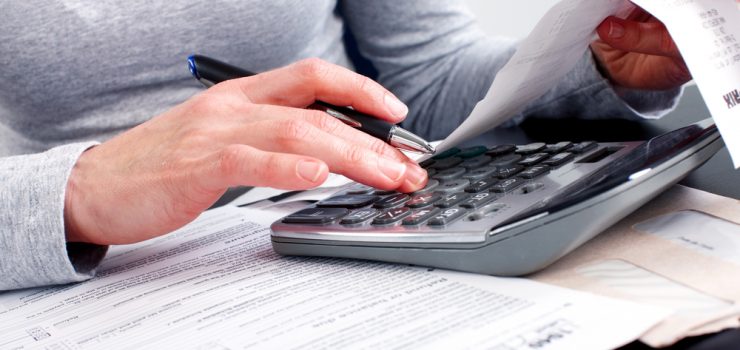There are some business owners I know that don’t really have a system for paying their bills. They just pay them when they remember, have time or get a friendly (or not so friendly) reminder from creditors. Accounts payable are the bills and other debts that your business needs to pay. The only thing that a business pays that’s not considered accounts payable is payroll. It’s an important thing to stay on top of, because the effectiveness of your accounts payable procedures affects your business cash position, credit rating and relationship with suppliers. It will also have a direct bearing on the accuracy and completeness of your financial statements. Here are a few tips to help stay on top of your accounts payable.
Process supplier invoices properly
It’s good practice to avoid paying supplier invoices too early but rather only when they’re due. When receipts and invoices come in from suppliers and are paid, they should be entered into your accounting software to the appropriate accounts. You can then check your accounts payable ledger and see what you still owe. You should always pay from original invoices by printing them once (if they’re electronic) and then file them. If you have to pay from a copy, be sure to check for the same invoice number, date and dollar amount to avoid duplicate payments. You should always have the account code (the expense account number), as well as any notes regarding processing and a date received stamped or written on them. Check the invoice date and make sure it’s on or close to the day you actually received it. If not, it can shorten your payment time considerably, especially if it’s only 7 or 14 days. Ensure you have a policy about how invoice numbers are to be entered. If you have an inconsistent method for this it will be difficult to track anything. Each vendor has their own system of invoicing, but assigning the invoice number in your system should be consistent. This also helps if there isn’t an invoice number provided. You should also refuse to pay inaccurate invoices (e.g. errors in quantities, pricing, address, etc.). These should be sent back to the supplier.
Maintain good supplier relationships
Implementing a good accounts payable system involves setting up preferred suppliers and negotiating the most favourable buying terms, such as payment period and pricing. Watch your payables and take advantage of any discounts being offered by suppliers. Some offer a small percentage off the price if it’s paid within a specified time from the invoice date or for volume purchases. This can save substantial amounts and you should have a system in place, when the invoice is received, that ensures you identify these opportunities. There are some businesses I know that have the strategy of extending payables as long as they can get away with, beyond the due date, to maximise their cash flow. Unfortunately, this approach is not without its problems. In some cases delaying payment can erode supplier goodwill, resulting in slower delivery times and responses to queries, less willingness to fix defects and more onerous payment terms in future. It’s also a good idea to periodically review supplier contracts and compare them against industry standard terms. Poor procurement standards can also place your business at risk of over-spending or trading with disreputable suppliers.
Manage cashflow
There are often times when accounts payable and accounts receivable don’t match. The aim is to always be financially prepared for times of big spending that come in advance of payments received. But when that doesn’t happen, there are some things you can do. Analyse your accounts payable and divide them up evenly so you’ll have the cash on hand to meet your other fixed expenses such as rent, utilities and payroll. Be proactive, and instead of ignoring your suppliers call them and let them know when they can expect to be paid, even if it’s not within the payment terms, thank them for their flexibility and remind them about your prompt previous payments. This can often cut down the interest owed or late payment fees. You should also select a method of payment (i.e. cheque, EFT, Bpay) that minimises bank charges and properly tracks all payments made, not just supplier payments. Don’t use credit cards. If you have to use your company credit card to pay your suppliers, consider the interest rates and if you can meet the monthly costs. Set up electronic payments with your suppliers and ask if invoices can be emailed rather than posted. Cash flow is important to any small business. A good system of monitoring and paying accounts payable gives you a clear picture of your expenditures against your revenue, enabling better business decisions and less stress for everyone.

